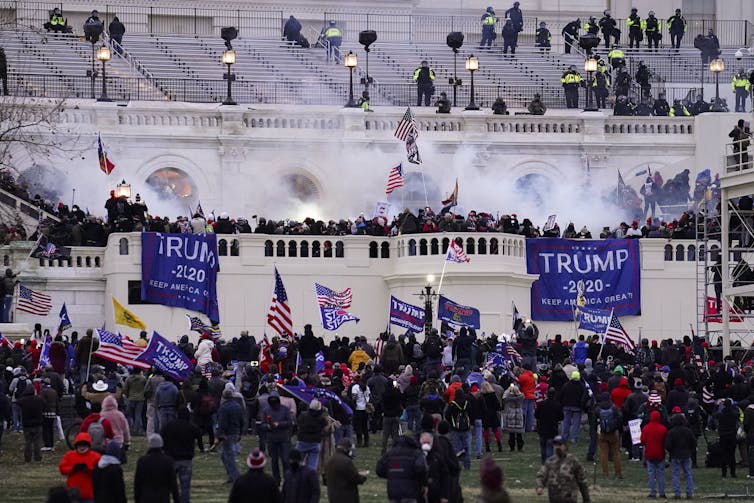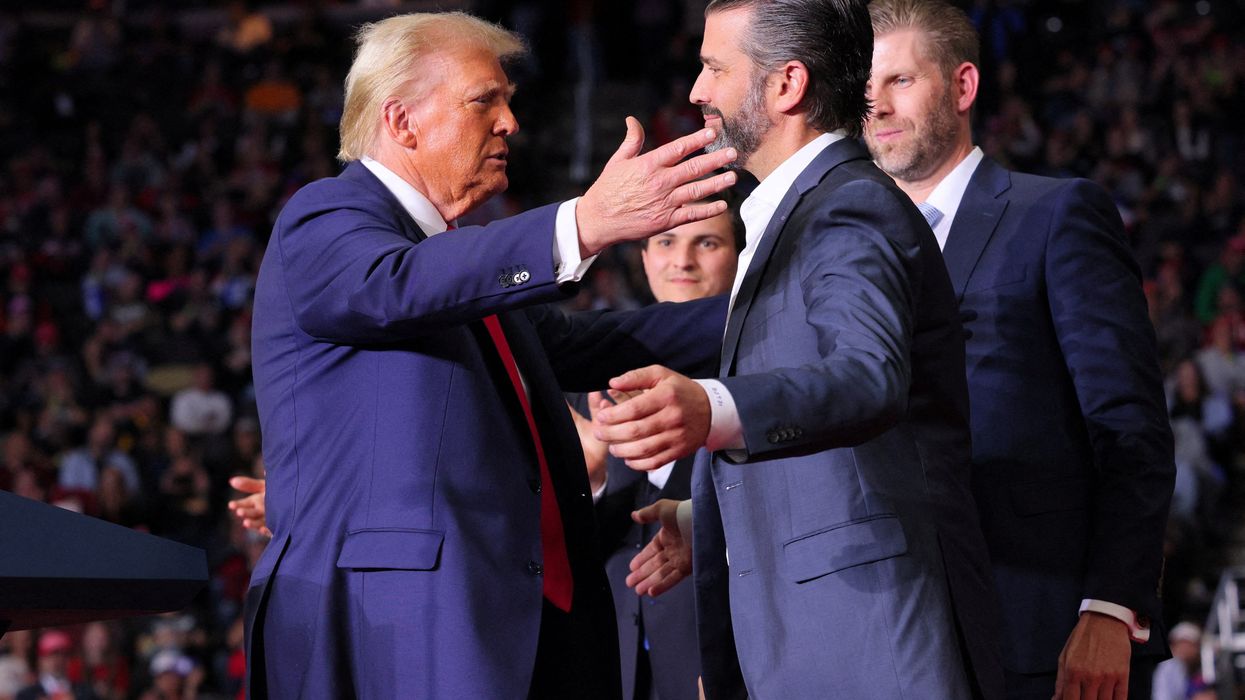One American pundit argued that Trump was “tapping into a long history of presidents leaning on the idea of strict adherence to the rule of law to squelch civil disobedience, often by minority communities in the country.”
His fixation continues in his second presidency. A convicted felon himself, Trump recently proposed a plan to exile Americans who are repeat offenders. Notably, America has never used exile as a form of punishment.
“We’re going to get approval, hopefully, to get them the hell out of our country, along with others. Let them be brought to a foreign land and maintained by others for a very small fee, as opposed to being maintained in our jails for massive amounts of money.”
The history of exile
I’m a scholar in public policy administration, law and ethics. Trump’s exile proposals in the wake of his pardon of the Jan. 6 rioters reveal significant ethical lapses.
In the modern era, exile is regarded as problematic. But in ancient times, like during the Roman Empire, voluntary exile was an alternative to capital punishment, underscoring its severity.
Similarly, in England, James II, a Catholic king, was the last monarch involuntarily removed from power during the Glorious Revolution. Jacobitism, the political movement aimed at restoring James and his descendants to the throne, stemmed from his exile.
Given this history, it’s not surprising that Article 9 of the Universal Declaration of Human Rights states: “No one shall be subjected to arbitrary arrest, detention, or exile.”
In modern times, people who go into exile are typically deposed heads of state like Syria’s Bashar al-Assad, those avoiding legal issues such as Julian Assange or Asil Nadir, or those escaping violence or persecution, such as Salman Rushdie.
Trump, who has initiated the largest and most ambitious removal program of undocumented migrants in America history, has made clear he wants to treat violent repeat American offenders no differently than violent immigrant offenders:
“I don’t want these violent repeat offenders in our country any more than I want illegal aliens from other countries who misbehave,” he said.
The Jan. 6 pardons
Trump’s stance as a “law and order” president is contradictory and hypocritical given his pardons of more than 1,500 Jan. 6 rioters on his first day back in the Oval Office.
The pardons drew unanimous criticism from Democrats and some Republican lawmakers, including senators Mitch McConnell and Lindsey Graham.
Even Vice President J.D. Vance has said any Jan. 6 rioters convicted of violent offences should “obviously” not be pardoned.
The law enforcement community — the actual front line of law and order — also expressed outrage at the pardons, and experts worry the move could embolden extremists to lawlessness and disorder rather than Trump’s supposedly preferred state of law and order.
Polls reveal that two-thirds of Americans — across party lines — also opposed pardoning Jan. 6 rioters who committed violent crimes.
More than 600 — or approximately one-third — of the defendants charged in the Jan. 6 insurrection faced accusations of assaulting or interfering with law enforcement officers. Of the 174 charged with using a deadly or dangerous weapon, 169 of them eventually pleaded guilty to assaulting police officers.
Other charges included trespassing, disrupting Congress, theft, weapons offences, making threats and conspiracy, including seditious conspiracy — the most serious offence.



